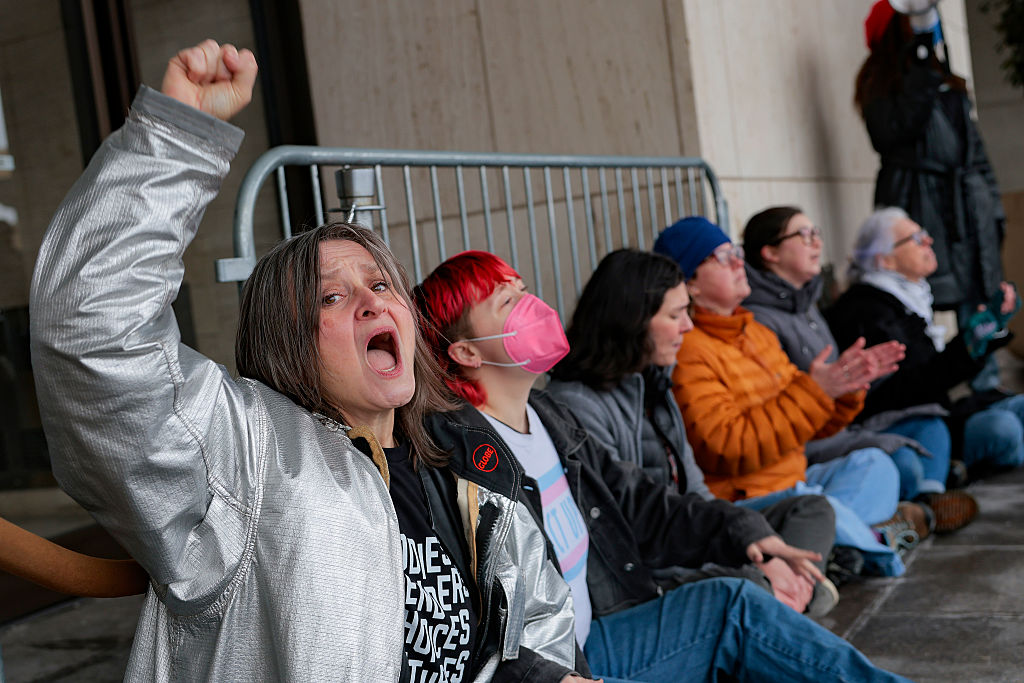The Sad Girl’s Guide To Finding A Therapist Who Doesn’t Suck

Trust your gut and don’t give up.

As a person who has been spilling my wholly unglamorous guts onto the internet since I was seventeen, I naturally get pressed with a lot of frantic questions from readers. The most popular question tossed in my direction is: “How do I get over someone who is good in bed?” I probably get asked that question 9,000 times a day. (I’ve since written a multitude of essays answering this question.)
The second most popular question that sheepishly makes its way into my inbox daily is this: “ZARA! I NEED TO FIND A GOOD THERAPIST! WHERE DO I START?”
This question used to send me spiraling into a dark, endless tunnel of helplessness. Who am I to tell anyone how to get a shrink? I don’t know anything about anything. My imposter syndrome (whom I’ve named Barbara) would sneer, socking me right in the vulnerable underbelly of my deepest insecurities. I would proceed to shiver under the cheap sheets of my bed and neglect to even answer the question because I was so paralyzed by self-doubt.
Until recently.
Through the consistent practice of really good therapy, it hit me that while I might not be good at texting people back quickly or cultivating a consistent workout routine, I’m a genius when it comes to vetting a therapist. I’ve learned through trial and error what to look for when finding your “soulmate” therapist, the one that will help you turn your life around and give you the tools to actually live up to your glorious potential.
And today, finally, I’m going to share my gems of knowledge with all of you.
1. Figure out your money situation.
During one of my darkest hours, at 23 years old, I made a desperate phone call to a woman I had only been dating for a few weeks. She was fifteen years older than I was and super together and bougie. “I need a therapist!” I wailed into the phone. I was in the throes of a severe panic attack. This sweet bougie angel called her sweet bougie shrink and booked me an appointment for the following morning. I didn’t even think about the money. I had never even been to a therapist before! I’m British. We don’t ~do~ that.
And my session was amazing! Once the hour ended, I finally felt hopeful for the first time in months.
“That will be $450.” The kind lesbian therapist cooed to me, crossing her gleamy bare legs. They shined like the top of the Chrysler building.
My heart fell into my chest. My mouth went dry. I didn’t even have that much in my bank account! I wrote a bad check and got the hell out of there convinced I would never find a therapist I could afford, and therefore, was doomed.
Do not do what I did. It will render you heartbroken, humiliated, and hopeless. Do your research before you go booking any shrink appointments. If you have insurance, get on the internet (I love ZocDoc) and only look up therapists that are at least partially covered by your healthcare provider.
If you don’t have insurance, you need to accept that therapy will be an investment, but it’s a smart as f*ck investment. Commit to not buying new clothes, ordering Seamless, or drinking your face off in the bar for, say, three months while you focus on your mental health. I actually saved money when I finally found a great therapist.
A great therapist will help you garner more self-awareness about everything, including the ways in which you recklessly blow your money. You don’t need to spend $450 a session, but you’ll likely have to spend $75-$100. Some therapists will work with you on a sliding scale. Another great option is to find a therapist who recently finished school and is still building up her clientele. These therapists are almost always cheaper and often better because they aren’t jaded or burned out from the “industry” yet.
So before you go searching for your dream shrink, take an honest look at your bank account and figure out exactly how much you can spend. Make a list of all the therapists either covered by your insurance or fall into your price range and pick up the phone (yes, the phone) and set up consultations.
2. Go on SEVERAL consultations.
Finding the right therapist that you deeply truly connect with can take time. Think of it like dating: The more you put yourself out there, the more likely you are to find someone you’re compatible with.
I know it’s exhausting (especially when you have depression, which I like to call the “fatigue disease”) to book appointments, talk on the phone, and march into unfamiliar offices where you’re expected to pour your heart out to strangers. I’m not going to lie to you and say it’s not because I’m not a liar, baby! However, the effort is worth it when you finally find the right shrink. I mean, finding a shrink is a big deal! It’s a bigger deal than finding the right romantic partner. This person has the ability to help you work through all that shit that’s holding you back and stopping you from living the life you deserve to live. It’s going to take time. It might be a tricky journey. But it’s your life we’re talking about. Put your energy into finding the proper counsel, and the outcome could potentially be… amazing.
3. Trust your gut.
When I finally found the therapist that wound up changing my life, I knew from the moment I walked into her office that she was “the one.” I felt safe in her presence. I didn’t feel pressured to talk about anything I didn’t want to talk about, rather, I felt so wonderfully nurtured and in “the womb” that it seemed perfectly natural to open up to her.
A therapist should always make you feel safe.
On that note…
4. If you’re used to being in unhealthy relationships, beware of the lure of the mean shrink.
If you’re not used to being in a relationship with anyone who makes you feel heard, safe, or seen, you might have some trouble accessing your true gut instincts and might find yourself seeking out the dysfunctional dynamic you’re oh-so-familiar with.
One time I saw a nasty shrink who told me I was a “dangerous person” and then doubted my sexuality! Did I run out of her office and never look back? No, girl. I whipped out my checkbook and booked another appointment. At the time, the only love I had ever really received had been critical, cold, and manipulative. Meanness was my comfort zone, and this mean therapist perfectly fit the bill.
Needless to say, she was the wrong match and didn’t help me at all. If you find yourself drawn to this type of therapist, and there is a parallel between this shrink and your interpersonal relationships, you need to check yourself before you wreck yourself. I don’t care how uncomfortable it is for you; you should choose a therapist that’s kind. You should feel supported in her presence. You should feel seen. And if she doubts your sexual orientation, tell her to “f*ck off” and write a nasty Yelp review. Would you go home with someone who was mean to you on the first date? OK, maybe you would. But still, that doesn’t make it right!
Also, a therapist can serve as a great practice relationship toward getting comfortable in nice, healthy, sweet dynamics with the people in your life. If you go for the kind therapist, you’ll start to be attracted to kind partners. Which is a HUGE step in the right direction, trust me.
5. Don’t give up.
It’s very easy to fall in “love” (professional love) with a therapist after your first appointment. And then by, say, appointment four, shit might start to get real and you may be tempted to run for the hills.
This is totally normal.
At the beginning of therapy, you’re often merely scratching the shiny surface that covers your deep well of issues. And then your therapist will begin to encourage you to stick your toe into the cold waters of your past. It might feel impossibly chilly and scary, and you might want to stay on stagnant on the dry land. You might find yourself angry with your therapist for pushing you out of your comfort zone. But that’s her job. She shouldn’t be tossing your body into the cold lake without warning, but rather gently holding your hand and guiding you through your untapped traumas and issues. Even with her support, it’s going to be scary. It’s going to be a mind-f*ck.
But you have to cross this body of water in order to get to the other side.
So don’t give up on your therapist when you start to feel feelings. Therapy isn’t like medication. It’s not a quick fix, a pretty pink Band-aid like your ex-girlfriend Xanax is. But unlike your ex-girlfriend Xanax, therapy will keep you healthy for the long haul. Band-aids aren’t designed to last forever.
Therapy will heal the wound that’s infecting your body and rendering your system sick, sick, sick. But it will take time. At least with this wonderful new shrink, you won’t be treating the wound alone. Infections don’t go away because we want them to. You’ll have to confront it eventually. Do it while you have support.
And in order for you to get better, your therapist might have to occasionally treat your wounds with rubbing alcohol which will sting, but it’s only because she wants you to heal. Underneath your own fear, so do you. Otherwise, you wouldn’t have clicked on this article.












